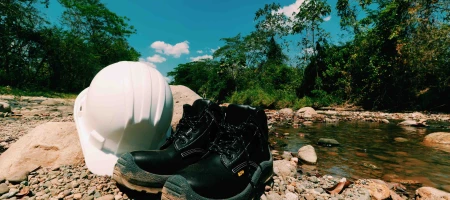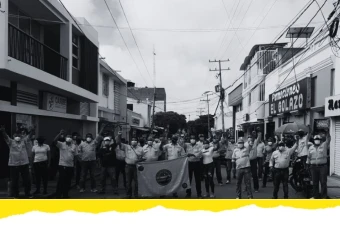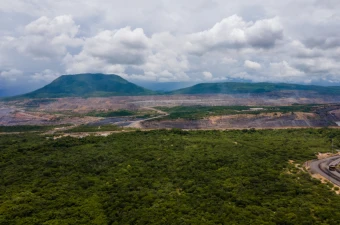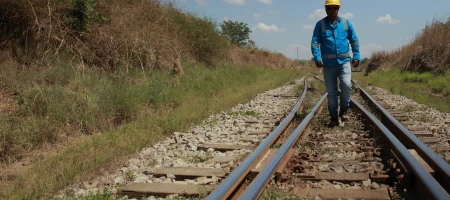
Government and Workers' Collective meet to discuss steps for just transition in coal sector
The Colombian Mineworkers Collective welcomes the government's willingness to incorporate the collective's proposals to the National Development Plan, the Mining Code and the Labour Statute. The next step in the new year is to concretise the plans.
Meanwhile, in view of the current worldwide energy crisis that has given coal demand and production a new boost, the Worker’s Collective also calls to review the hourly contracts. By law, working hours may not exceed 10 hours per day; yet, workers work 12-hour shifts in life-threatening conditions.
In addition, Ana Catalina Herrera, Coordinator of CNV Internationaal for Colombia, says:
Mine closure plans need to be regulated; number of personnel should not be downsized before total closure.
On 14 December, the Workers Collective invited different ministries for an Inter-institutional and Multi-Stakeholder Dialogue Forum on Just Energy Transition in coal mining.
CNV Internationaal and the Worker’s collective welcomed the government’s interest in including the Workers’ Collective proposals that aims to ensure decent work and life for coal workers.
Health
Many miners suffer from health problems because of the extreme working shifts in this high-risk industry. The 12-hour shifts make it nearly impossible to live a normal family life. Many fear they will not reach pension age in good health because of the demanding working conditions. The miners denounce the lack of responsibility the companies take that are closing operations today.
Roadmap
In the context of decarbonisation, social dialogue is crucial to make sure the coal workers are heard. More so on the eve of the elaboration of a National Development Plan in Colombia, the drafting of the Labour Code as well as a roadmap for a just energy transition in this country.
Multi-Stakeholder Dialogue
On 14 December, during the Inter-institutional and Multi-Stakeholder Dialogue on Just Energy Transition in coal mining forum organised by CNV Internationaal, members of the Workers' Collective for a Just Transition had the opportunity to talk to different Colombian ministers and senators.
Workers shared with them how returning mining titles by Prodeco affects them. They also shared their proposals to create a just energy transition in the country.
Video Interinstitutional Forum
How returning mining titles by Prodeco affects workers
Workers share their proposals to create a just energy transition
What is the Colombian government proposing?
Roadmap for national social dialogue
The Ministry of Mines assured legislative and programmatic tools are already in place to support the construction and implementation of a just energy transition plan. These include law 2099 of 2021 on energy transition and a document to improve a national social dialogue to define the roadmap for a just energy transition in Colombia. ( “Diálogo social para definir la hoja de ruta de la transición energética justa en Colombia” ).
Reindustrialisation
From the Ministry of Industry and Trade, the government intends to abolish extractives and move towards a productive economy.
The ministry wishes to create a policy for reindustrialisation: this has to be a process of transformation for the creation of value and wealth.
Revitalisation
This momentum of transition is related to the obligations of the mining companies
At the same time, the Ministry of Environment emphasised that the government is reviewing the conditions of the mining corridor in the department of Cesar, in the north of Colombia.
Despite its natural wealth, there is a great deal of degradation in the territory due to exploitation, which is why the ministry is opting to revitalise the region, where it is also seeking to agree with the community on a new productive direction, recognising that this momentum of transition is related to the obligations of the mining companies.
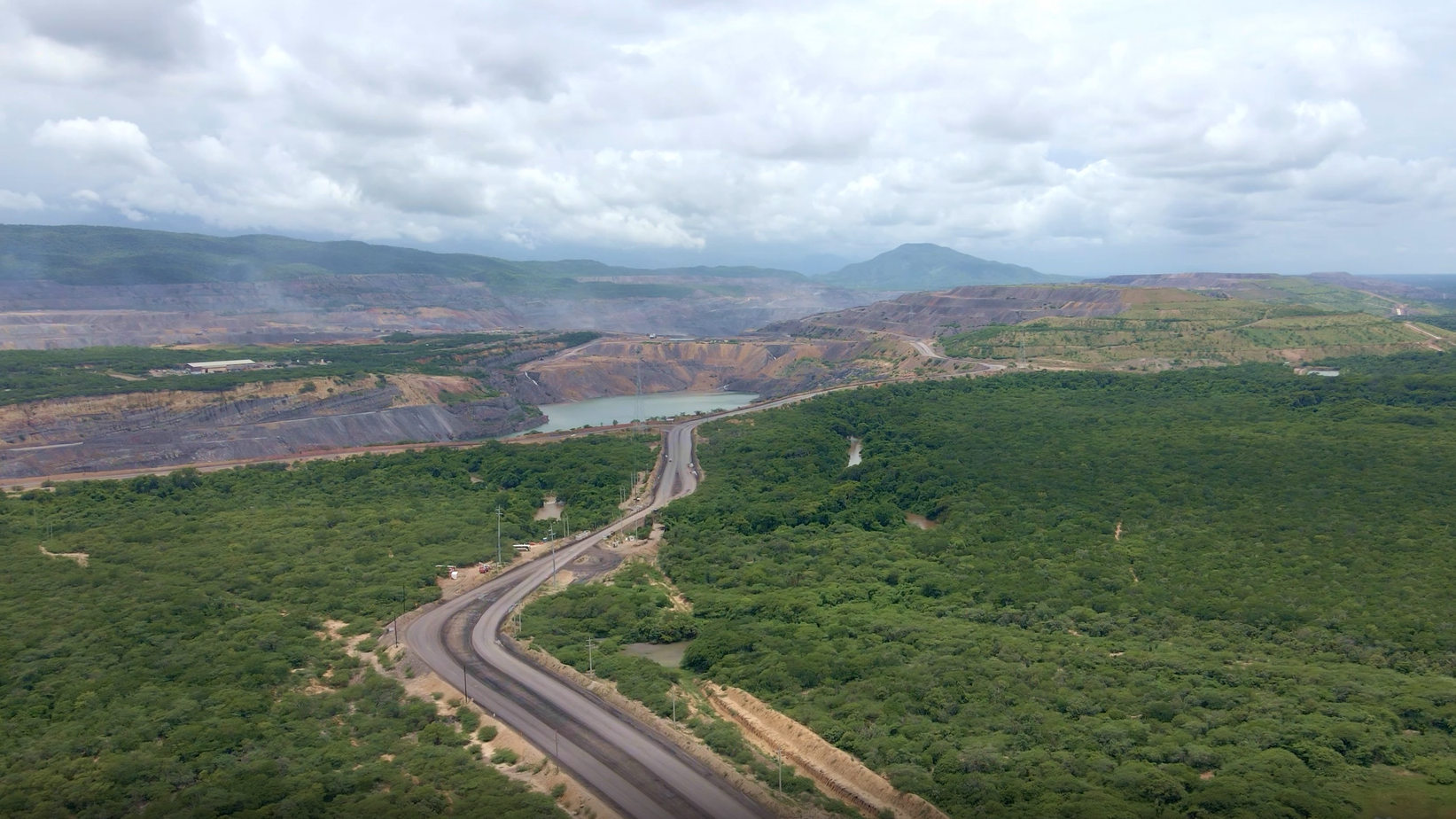
ILO - Linking the world of work with climate change
Estimated loss of around 7 million jobs around the world because of the transition
The International Labour Organisation underlines the importance of linking the world of work with climate change.
New businesses generating green jobs create new job opportunities; nevertheless, the risk is imminent, with an estimated loss of around 7 million jobs around the world because of the transition.
Climate migrants will also affect the world of work.
The Mining Code
The Mining Code is vital, especially considering the situation of Prodeco in Cesar, where around 1200 workers were left unemployed after the mining titles were handed over.
The Workers' Collective's concerns about the Mining Code
There is a high demand to amend the Mining Code because of the loopholes in it. A draft bill is to be expected by the end of February. The same community that took part in the public consultation will have the opportunity to react. This will be followed by a prior consultation phase and then consolidation in the middle of next year.
With regard to the new Mining Code, the Collective expressed the need for the different social organisations to monitor the processes with mining companies and calls for open-pit mining to be listed as a high-risk activity.
For the Worker’s Collective, the Mining Code is vital, especially considering the situation of Prodeco in Cesar, where around 1200 workers were left unemployed after the mining titles were handed over. This situation introduces a special chapter on mine closures with a labour perspective.
New labour law
The Mine Workers Collective's view on what the new Labour Law should cover
The hourly contracts need to be reviewed. While the law states a maximum of 10 hours a day, workers have 12-hour shifts in life-threatening conditions.
For the members of the Collective, mine workers have particularities, specific to the mining activity, that must be taken into account.
In the case of coal mining, the hourly contracts need to be reviewed. While the law states a maximum of 10 hours a day, workers have 12-hour shifts in life-threatening conditions.
Another worrisome aspect is the lack of regularisation of outsourcing processes. According to members of the Collective, some regulations help evade responsibilities in order to benefit the companies.
Workers' Collective’s next steps
With regard to mine closures and just transition, Ana Catalina Herrera, Coordinator of CNV Internationaal for Colombia, calls for a regulation on mine closure plans that does not allow the downsizing of personnel until a certain time before total closure.
In this regard, at the beginning of 2023, the workers will create a joint statement with the Colombian coal sector unions that make up the Collective: Sintradem, Sintramienergética, Sintradrummond, Sintracerrejón and Sintracarbón, for a just energy transition in the coal sector. This document will be presented to the government; it will focus on:
- social dialogue and trade union freedom,
- social protection,
- economic diversification
- labour reconversion.
Ana Catalina Herrera, Coordinator of CNV Internationaal for Colombia, calls for
A regulation on mine closure plans that does not allow the downsizing of personnel until a certain time before total closure.
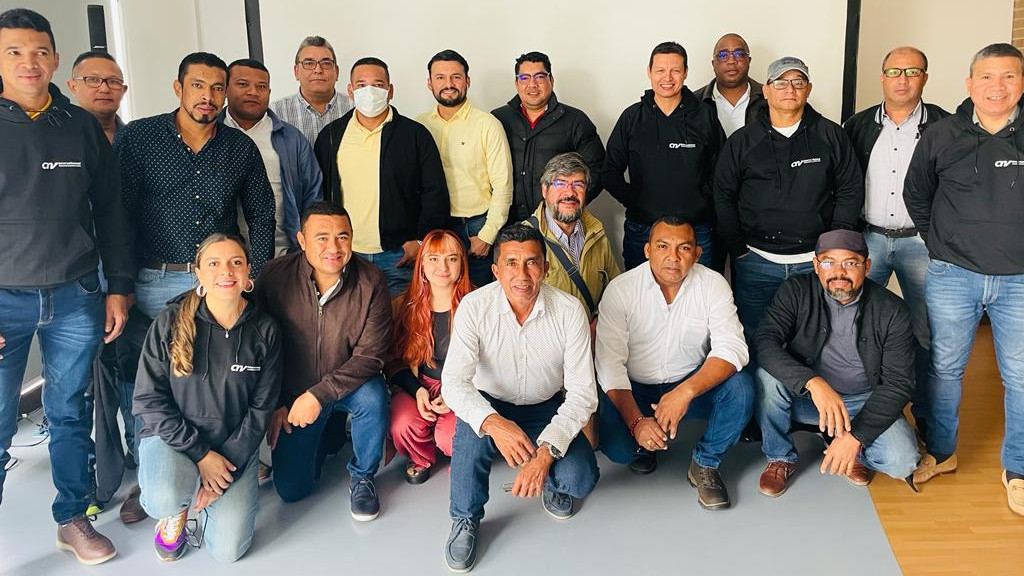
Publication date 25 01 2023
